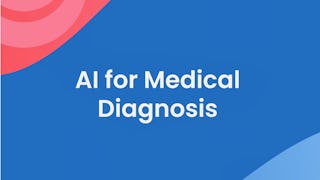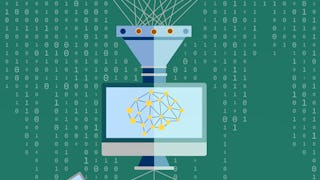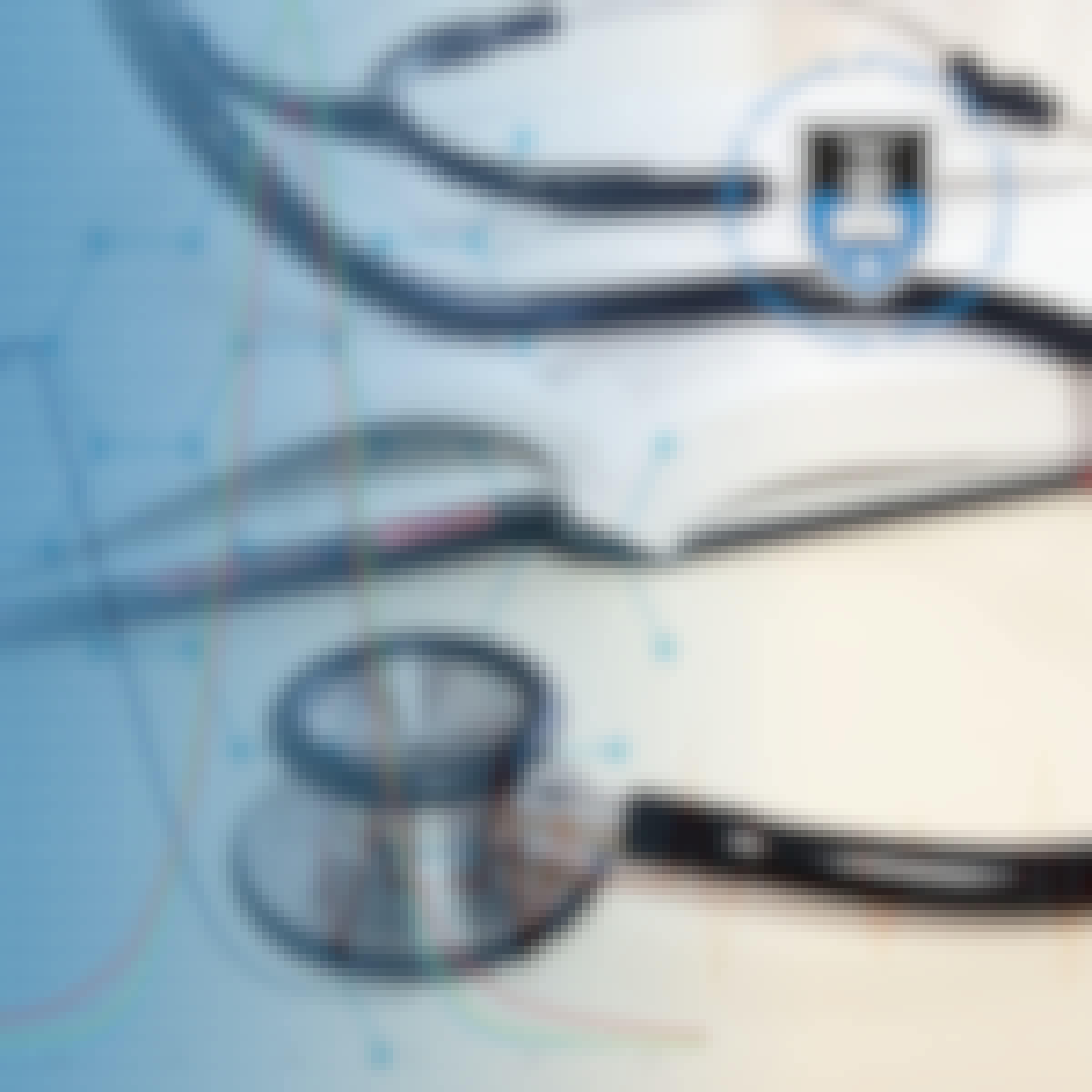Filter by
SubjectRequired
LanguageRequired
The language used throughout the course, in both instruction and assessments.
Learning ProductRequired
LevelRequired
DurationRequired
SkillsRequired
SubtitlesRequired
EducatorRequired
Explore the Medical Device Course Catalog
 Status: Free Trial
Status: Free TrialUniversity of Pennsylvania
Skills you'll gain: Intellectual Property, Healthcare Industry Knowledge, Pharmaceuticals, Health Care, Medical Privacy, Law, Regulation, and Compliance, Regulatory Affairs, Medical Science and Research, Research, Economics, Brand Strategy

Johns Hopkins University
Skills you'll gain: Health Systems, Systems Engineering, Health Technology, Healthcare Industry Knowledge, Health Care, Systems Integration, Systems Analysis, System Requirements, System Testing, Requirements Analysis, Enterprise Architecture, Solution Design
 Status: Free Trial
Status: Free TrialDeepLearning.AI
Skills you'll gain: Image Analysis, Predictive Modeling, Artificial Intelligence and Machine Learning (AI/ML), Data Processing, Applied Machine Learning, Medical Imaging, Machine Learning Algorithms, Computer Vision, Deep Learning, Natural Language Processing, Medical Science and Research, Machine Learning, Radiology, Artificial Neural Networks, Probability & Statistics

Duke University
Skills you'll gain: PyTorch (Machine Learning Library), Reinforcement Learning, Image Analysis, Applied Machine Learning, Deep Learning, Machine Learning, Natural Language Processing, Supervised Learning, Python Programming, Unsupervised Learning, Artificial Neural Networks, Computer Vision, Medical Imaging

École Polytechnique
Skills you'll gain: Peer Review, Journals, Scientific Methods, Research, Research Design, Research Methodologies, Editing, Style Guides, Ethical Standards And Conduct, Data Management
 Status: Free Trial
Status: Free TrialUniversity of Minnesota
Skills you'll gain: Payment Systems, Healthcare Industry Knowledge, Medical Equipment and Technology, Cost Benefit Analysis, Clinical Trials, Health Technology, Clinical Data Management, Financial Regulations, Program Evaluation, Pharmaceuticals, Health Policy, Risk Analysis, Health Care Procedure and Regulation, Claims Processing, Health Care, Regulatory Affairs, Quality Assessment, Medicare, Probability & Statistics

Stanford University
Skills you'll gain: Descriptive Statistics, Statistics, Statistical Methods, Sampling (Statistics), Statistical Analysis, Data Analysis, Statistical Modeling, Statistical Hypothesis Testing, Regression Analysis, Statistical Inference, Probability, Exploratory Data Analysis, Quantitative Research, Data Collection, Probability Distribution

American Museum of Natural History
Skills you'll gain: Medical Science and Research, Healthcare Ethics, Clinical Research, Life Sciences, Biology, Precision Medicine, Molecular Biology, Emerging Technologies, Laboratory Research, Ethical Standards And Conduct

University of Cape Town
Skills you'll gain: Biostatistics, Statistical Methods, Statistical Hypothesis Testing, Probability & Statistics, Clinical Research, Statistical Analysis, Quantitative Research, Statistics, Descriptive Statistics, Statistical Inference, Data Collection, Probability

Johns Hopkins University
Skills you'll gain: Clinical Trials, Clinical Research, Qualitative Research, Data Synthesis, Scientific Methods, Research Methodologies, Data Collection, Biostatistics, Analysis, Quantitative Research, Risk Analysis, Statistical Methods, Epidemiology, Statistical Analysis

Duke University
Skills you'll gain: Neurology, Anatomy, Medical Science and Research, Psychology, Pathology, Molecular Biology, Biology, Pharmacology

Stanford University
Skills you'll gain: Grant Writing, Peer Review, Technical Writing, Technical Communication, Writing, Scientific Methods, Journals, Editing, Grammar, Research, Media and Communications, Ethical Standards And Conduct
Medical Device learners also search
In summary, here are 10 of our most popular medical device courses
- Intellectual Property in the Healthcare Industry: University of Pennsylvania
- Foundations of Healthcare Systems Engineering: Johns Hopkins University
- AI for Medical Diagnosis: DeepLearning.AI
- Introduction to Machine Learning: Duke University
- How to Write and Publish a Scientific Paper (Project-Centered Course): École Polytechnique
- Medical Technology and Evaluation: University of Minnesota
- Introduction to Statistics: Stanford University
- The Science of Stem Cells: American Museum of Natural History
- Understanding Clinical Research: Behind the Statistics: University of Cape Town
- Introduction to Systematic Review and Meta-Analysis: Johns Hopkins University










